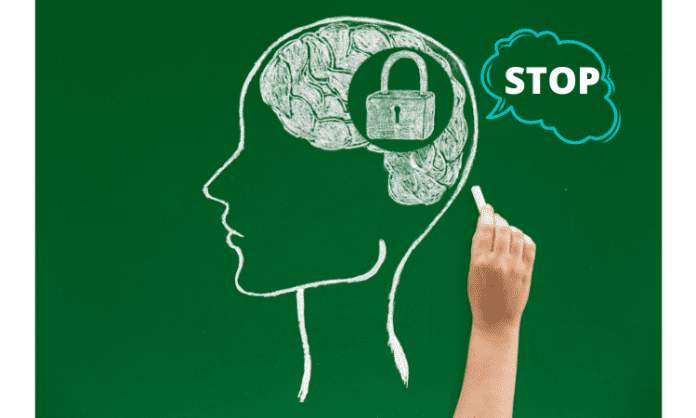
It’s natural to become close-minded when you’re in a situation where you’re not sure of what’s going on, or when you’ve been hurt by someone who has lied to you. However, there are ways to avoid becoming close-minded and keep your mind open. Being open-minded is a great way to improve your overall outlook on life. It can also help you become more creative and even make you more positive about the world around you. If you’re curious to learn how, here are six tips for how to stop being close-minded.
Cause of being close-minded

The most common cause of being close-minded is a lack of experience. People who have not traveled or met many people from different cultures are more likely to be close-minded, because they don’t have any exposure to different ways of thinking.
Another reason people may become close-minded is that they feel threatened by other people’s opinions. If someone says something that threatens your beliefs or feelings, it’s natural to get defensive, but if you let that defensiveness lead you to become close-minded, then you’re missing out on some great opportunities for growth!
Dangers of being close-minded
If you think you’re open-minded, it’s easy to assume that you’re not close-minded. But what happens when your thoughts are so rigid that they only allow for one reality?
Being close-minded is dangerous for a number of reasons. For one thing, it makes it impossible to learn from new experiences or different viewpoints. It also prevents you from creating meaningful connections with others and limits your ability to form meaningful relationships.
If you find yourself thinking in a way that’s too black-and-white and rigid, there are several things you can do to change your way of thinking. For example, instead of dismissing something as “impossible” when it comes up in conversation, try asking questions about why someone believes what they believe or how they came to that conclusion. If possible, try doing the same thing yourself: listen carefully to what other people have to say and then share your own thoughts on the subject.
Close-mindedness can even impact other aspects of your life. For example, if you’re close-minded about politics or religion, it could affect how well you get along with other people who have different beliefs than yours—or even make it difficult for those people to feel comfortable around you!
Steps need to be taken to stop being close-minded
Be open-minded with your opinions.

Be open-minded with your opinions.
Be open-minded with your food.
Be open-minded with the music you listen to.
Be open-minded with the people you meet and talk to, even if they’re different from you or seem weird at first glance!
Actively seek out new experiences.
The best way to stop being close-minded is to experience new things. This can be done in a variety of ways, such as traveling, reading books, trying new foods and activities or hobbies. You can try new things with friends and family or even alone if you want.
It helps you keep an open mind because there are always going to be situations that come up where you will need an open mind.
Be curious.

Curiosity is the best way to stop being close-minded. Be curious about things you don’t know about and ask questions about them. Also, be curious about other people, their cultures, experiences and beliefs.
Be curious about yourself too: what makes you unique? What are your strengths and weaknesses? What are your values? Question yourself often so that you can learn more about who you are as a person.
Being curious also means asking questions of the world around us. How did this happen? Why did this happen? How can I make a difference in my community/the world with my talents/skills/knowledge? What does it mean for me to have this ideology or belief system today given our current political climate — or any other time period for that matter — and how does that compare with others’ perspectives on similar issues at different times throughout history (or even eras such as pre-industrialization vs post-industrialization)? Who has been excluded from conversations on these topics over time due to privilege or lack thereof; how do these exclusions leave some groups feeling marginalized versus others feeling empowered in society today despite both being equally deserving of rights under law?
Be humorous

Humor is a great way to open up to new ideas and make people feel comfortable. It also helps you learn, relax, and get along with people.
Here are three ways humor can help you:
- Humor reduces stress by making it easier for your body to release endorphins that make you feel calm. This makes it easier for you to handle difficult situations without getting upset or anxious about them.
- Humor makes you more approachable by making others feel more comfortable around you—which means they might share things with you that they wouldn’t tell someone who didn’t seem as friendly or open-minded as yourself!
- Humors helps us learn new things because laughter causes our brains to release endorphins (chemicals in the brain) that make us feel happy; this feeling of happiness reminds us of other times we’ve felt happy – like when we were learning or playing games when we were younger; which gives our brains clues about how those activities made us feel so then later down the road if something similar happens again (like learning a new skill), we’ll recognize it right away!”
Be able to learn from others.

It is important to be able to learn from others. The more you can learn, the more you will grow as a person, and the more you will be able to contribute to society.
You should always be open-minded and willing to explore new ideas, try new experiences, meet new people and learn about their cultures and backgrounds. This means that if someone invites you over for dinner or asks you on a date, it’s okay for them not necessarily being your type. You should also try foods that are different than your usual fare (if possible). In addition to food, listen to music from other cultures as well as read books by authors from different backgrounds than yours (ideally those with which you have commonalities).
Don’t be biased.
When it comes to being open-minded, the first step is to be aware of your own biases. If you don’t know what they are, then how can you avoid them? Be on the lookout for any bias that might come through in your words or actions.
Bias is often unconscious—we’re not always aware of our own thoughts and feelings. But we should be as much as possible! If we’re aware of our own opinions, beliefs and emotions, then we’ll also be more aware of how they impact other people’s lives too.
Travel More!

Another best way to stop being close-minded is to travel.
When you visit a new place, it forces you to see things from a different perspective. You may have heard about the place before, maybe even seen pictures of it online or in magazines, but when you get there and see it for yourself, your mind is forced to process what you’re seeing in a new way.
It’s like when your friend tells you about their vacation and then shows photos from it—you can’t help but feel jealous because you didn’t get to go on the same trip! This is similar. You can hear about a place all day long, but until you go there yourself, it won’t truly be real for you until then.
Watch Educational Videos

The best way to avoid becoming close minded is to watch educational videos. These can be in the form of documentaries, educational films, or even National Geographic specials. The reason these resources work so well is that they give you an opportunity to learn about things you have never seen before. This can help you break out of your comfort zone and see how the world works in a new light.
Being open-minded can make you a more positive person, and it can help you become more creative.
Open-mindedness is a great quality to have. Not only does it help you become more open-minded, but it can also help you become more positive, creative, accepting and tolerant.
Being open-minded will allow you to learn new things and try new things that might not be something that you enjoy doing or believe in. And when we’re able to experience different things from people who think differently from us, this helps with creativity because we are exposed to new ideas and ways of thinking about things which makes coming up with creative ideas easier for us.
Being open-minded means being willing to accept opinions other than your own without judging them as inferior or wrong just because they don’t agree with yours. It means being able to discuss topics openly without feeling threatened by someone else’s opinion on the matter at hand (as long as it isn’t hateful speech). A person who is truly open-minded believes in free speech while still respecting everyone else’s right not having their feelings hurt by hearing opinions they disagree with – even if those opinions are offensive or racist/sexist etcetera! This is an important trait for anyone working together towards achieving common goals; so if someone doesn’t want others speaking freely out loud then maybe they’re not ready yet – but that shouldn’t stop anyone else from trying anyway!
Conclusion
You might be wondering if there’s a downside to being open-minded. Well, it can take some effort and energy to keep an open mind. If you find yourself getting stressed out and overwhelmed by new ideas or information, don’t worry—this is normal! Remember that it will probably get easier over time as you practice being more receptive. And remember that while it may feel like hard work at times, being open-minded will ultimately make you a better person: more positive, creative and collaborative with others.
In conclusion, I believe that we must be careful not to become close-minded. We must always be willing to consider new ideas, even if they conflict with our current beliefs. We need to be open to change and growth, even when it’s uncomfortable or scary.
Read Also – Ideas to Live with More Confidence.











